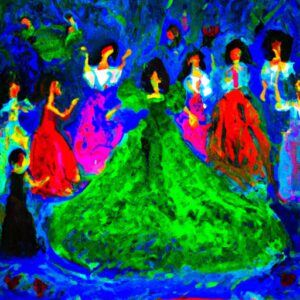Why most Italian words end with vowels?
Before we give you a more insightful explanation, let’s review some grammatical rules concerning nouns (things, people, ideas) and adjectives (words describing nouns).
They might help you understand why most words end with a vowel:
- Masculine singular nouns and adjectives generally end in -o (il freddo)
- Feminine singular nouns and adjectives generally end in -a (la pianta)
- Masculine plural nouns and adjectives generally end in -i (i pantaloni)
- Feminine plural nouns and adjectives generally end in -e (le macchine)
If you think about verbs, they all end in -e, as in parlare (to talk), bere (to drink), and dormire (to sleep).
What are the vowels in Italian?
Now, let’s clarify vowels are sounds rather than letters. This is why we’re going to represent these sounds inside slashes, i.e.,/a/, /b/, /k/.
A vowel is a sound that makes the vocal cords vibrate. It can be shouted until we’re out of breath.
The Italian language has 7 vowels: one sound for /a/, one for /i/, and one for /u/, and two different sounds for /e/ and /o/.
However, this depends on the region of Italy you are in. Some would argue there are only 5 vowels.
Consonants are sounds like /b/, /k/, /d/, /f/, etc. They cannot be shouted. If you don’t believe us, try shouting a consonant.
Then there are syllables. Syllables are made of consonants (C) and vowels (V).
The most common combination of sounds in all languages is CV. Italian likes to stick to this phonetic rule.
Also, Italian comes from Latin, which is a dead language nowadays, and Latin also prefers the combination of a consonant followed by a vowel.
How does the combination with vowels work?
Did you know almost in every language, the first word pronounced by babies is “mama” or a variant of it?
This, of course, has to do with meaning. Babies spend most of their early months with their parents, so it makes sense to say “mama” (or “papa”).
However, there’s another important reason: a combination of “easy” sounds.
The word “mama” is made of the consonant /m/ and the vowel /a/.
It can be produced by doing little more than closing and opening the mouth.
If you think about it, this combination of sounds is smooth.
Try pronouncing the sounds /pr/, /tl/, /mn/, and then the sounds /li/, /mo/, /sa/. The latter sounds are more natural.
This is why almost all Italian words end with a vowel.
This explains, too, why many Italians add a final vowel to English words: it’s a natural reaction.
What are some Italian words ending in consonants?
There are, however, some Italian words ending in a consonant, such as /l/, /r/, /m/, and /n/.
If you think about those sounds, they can all be sustained, similar to vowels, and unlike sounds like/ t/, /k/, and /b/.
Again, if you’re not sure, try to pronounce them.
Here are some words ending in those consonants:
- il (the)
- in (in)
- con (with)
- per (because)
As you can see, they’re very short words.
By the way, if you’re struggling with Italian pronunciation, have a look at our Italian pronunciation guide.










2 Responses
Well done stefano
😀